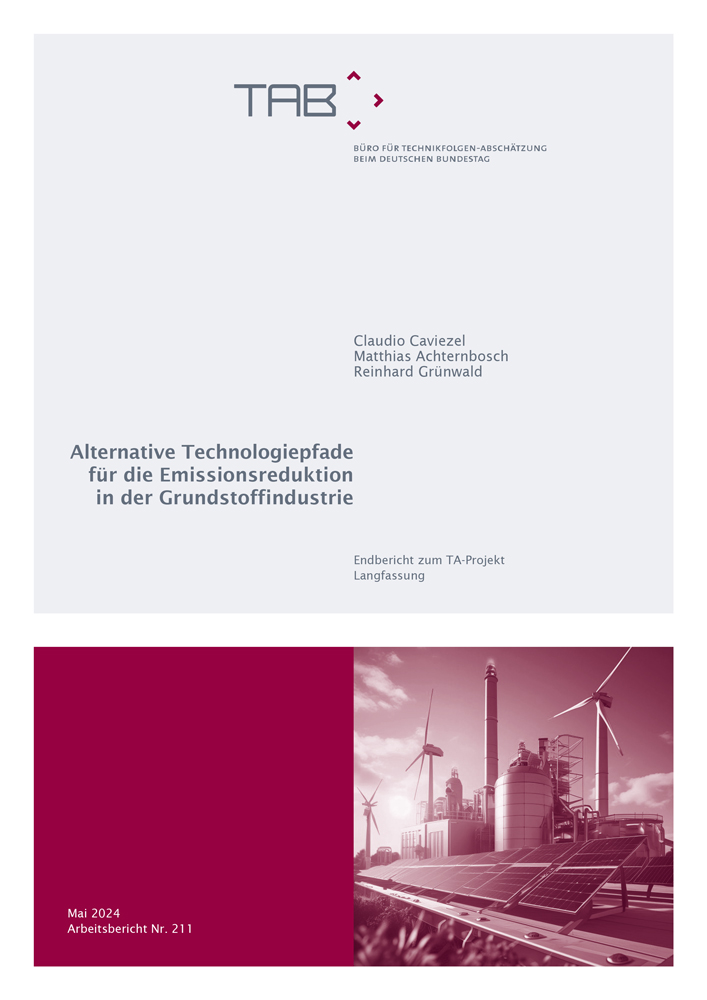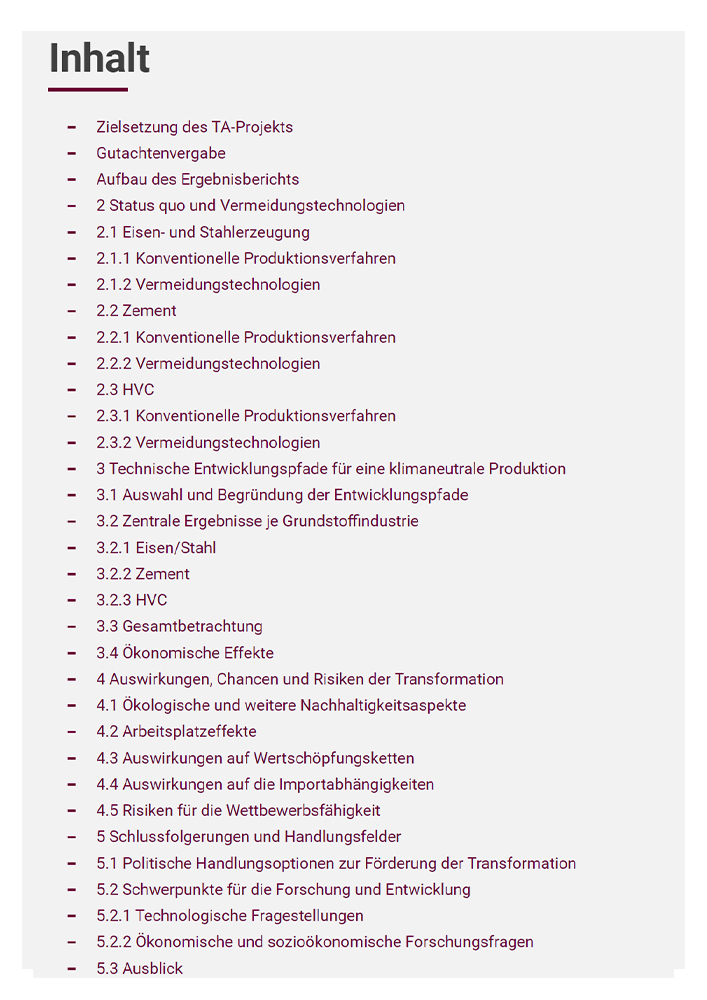Transformation to climate-neutral industrial production in Germany appears technically feasible
Germany is to become climate neutral by 2045. This means that industry, which in 2020 was responsible for 24% of Germany's greenhouse gas emissions (GHG emissions) with 176 million tonnes of CO2 equivalents, must cease to emit any net GHGs by 2045. Assuming that industrial goods are to continue to be produced in Germany in similar quantities to today, conventional production processes based predominantly on fossil resources will have to be converted to low-emission processes and raw materials within the next 20 years.
To investigate whether and how this can be achieved, our study analysed alternative technology paths for the three most emission-intensive primary industries - iron/steel production, cement production and the production of organic chemical raw materials - which together account for more than 40% of industrial greenhouse gas emissions in 2020.
Our recently published study concludes that while a sustainable transformation is technically and economically challenging and involves high risks for industrial companies, which often face fierce international competition, it appears feasible if policymakers continue to play their role and support companies in the necessary transformation process.
In addition, an integrative overall concept that does not exclude important sustainability concepts such as material efficiency and sufficiency in industry and society beyond the subject of the study is particularly important for the successful implementation of the transformation.
The study results are provided in two reports. TAB Report Nr. 211 provides a detailed and comprehensive description of current (conventional) production technologies and the state of knowledge on possible abatement technologies in the three basic industries, and identifies the technical and economic challenges as well as open research questions. Based on the modelling of two possible development paths towards climate neutrality, which differ mainly in the scope of international cooperation, the report discusses the economic, ecological and other sustainability impacts of the transformation in order to assess the effects on employment, upstream and downstream value chains, import dependency and risks for the competitiveness of the German primary industry. Finally, industrial and research policy options are derived to promote the transformation towards a climate-neutral primary industry by 2045.
The TAB Report Nr. 210 provides a detailed summary of the entire study and is available in full as an online version on the project website.
28.05.2024
Downloads and further information
-
TAB-Arbeitsbericht Nr. 210 (in German only)
Alternative Technologiepfade für die Emissionsreduktion in der Grundstoffindustrie. Endbericht zum TA-Projekt (Ergebnisbericht) (PDF) -
TAB-Arbeitsbericht Nr. 211 (in German only)
Alternative Technologiepfade für die Emissionsreduktion in der Grundstoffindustrie. Endbericht zum TA-Projekt (Langfassung) (PDF) - Project page (with online version of the executive summary)


